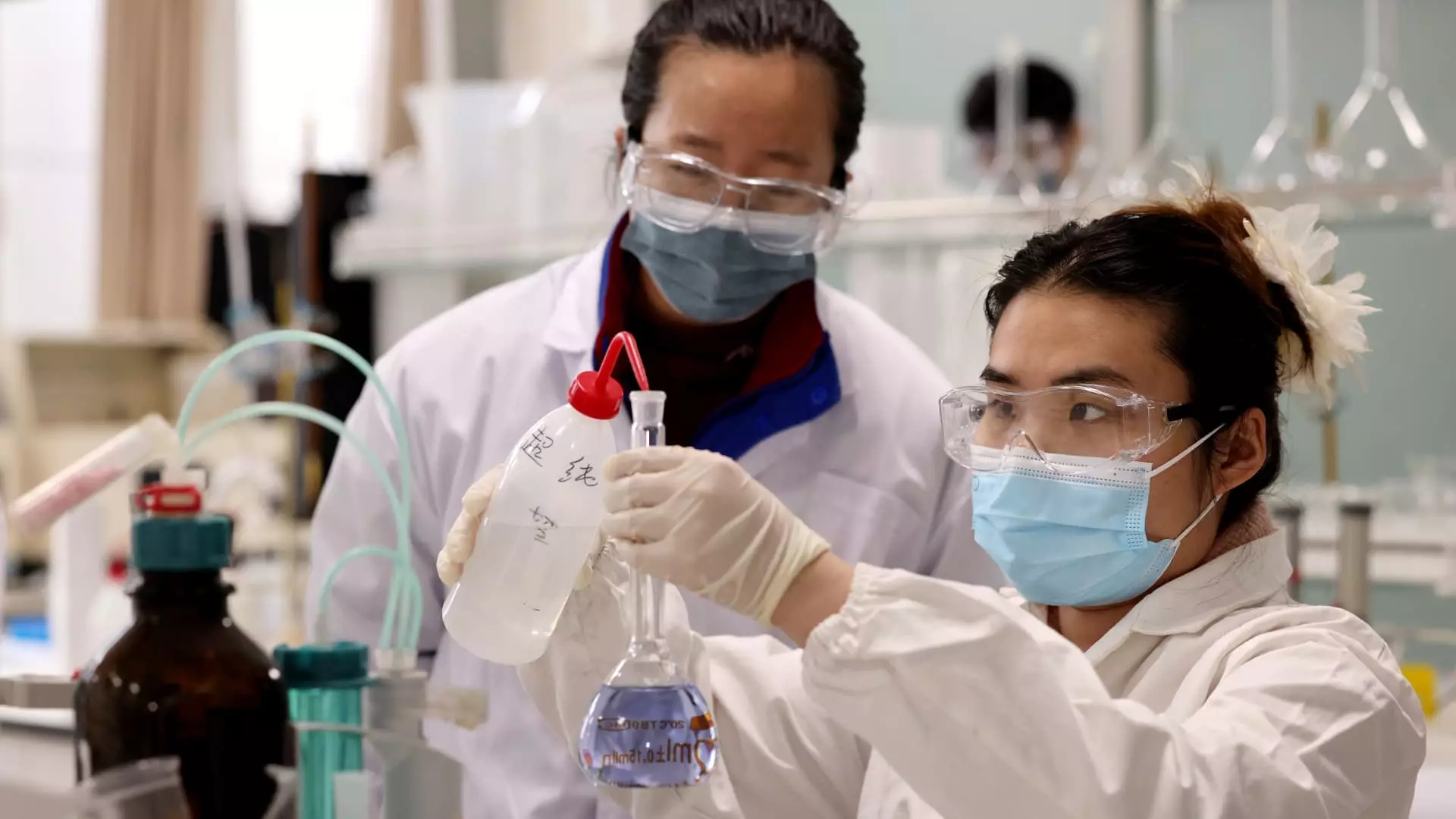In a world where technological supremacy dictates global influence, the recent indications of China’s rapid ascent in the biotechnology sector are nothing short of alarming for the United States. While the U.S. has long basked in the glory of its innovative prowess, recent studies suggest that China is not only catching up but may even surpass America in crucial fields such as drug development and agricultural biotechnology. The Harvard Belfer Center for Science and International Affairs explicitly states that China has a “most immediate opportunity” to outpace the U.S. in biotech, signaling a critical shift in the global power dynamics in innovation.
The implications of these findings are profound. As biotechnology begins to emerge as the next frontier of human development, America’s longstanding dominance in this field is at stake. The report emphasizes that the narrow technological gap should serve as a clarion call for action; each advancement China makes is a direct threat to U.S. interests. The power of biotechnology is undeniable, as it impacts everything from healthcare to food security, making it an essential asset in geopolitical strategies.
Urgent Responses Needed
The alarm bells are ringing in Washington. The bipartisan National Security Commission on Emerging Biotechnology has warned of an impending “ChatGPT moment” for biotech, where a breakthrough by China could fundamentally alter the landscape. The commission has urged immediate government action, advocating for an investment of at least $15 billion in the American biotech sector over the next five years. These recommendations come not merely as a response to competition, but as a matter of urgency that could redefine national security in the 21st century.
The imperative for a “two-track strategy” — promoting rapid domestic innovation while seeking to slow down China’s advances — underscores the seriousness of the situation. The suggestion that America must innovate faster and smarter reflects an awakening to the fact that the old paradigms of dominance no longer suffice. If the U.S. continues to lag behind while China accelerates, the future may witness a reordering of global power where biotechnology becomes a bargaining chip for geopolitical leverage.
China’s Strategic Edge
Several factors contribute to China’s burgeoning strength in the biotech arena. The country holds a significant advantage in pharmaceutical production, supported by an abundance of human capital focused on scientific research. Furthermore, China’s regulatory framework is notably more flexible, facilitating faster approvals and commercialization of scientific breakthroughs. This nimbleness has allowed the Chinese biotech industry to flourish, attracting investments from Western pharmaceutical giants eager to capitalize on innovative Chinese-developed drugs.
While the U.S. grapples with an often cumbersome regulatory process, many argue that China’s state-led initiatives provide a model of coordinated high-level support that has propelled its biotech sector to forefront of global innovation. U.S. firms and research entities are now facing tough competition not just in market share but in the very nature of what it means to innovate. With layoffs and vacant labs surfacing in Boston and Cambridge, the stark reality is becoming evident: American leadership in biotechnology is in jeopardy.
The Illusion of Cooperation
Amidst rising tensions, the prospect of U.S.-China cooperation in critical technologies seems increasingly bleak. Experts, including Eric Rosenbach from Harvard’s Belfer Center, assert that the likelihood of collaborative efforts in biotech and AI is minimal. This lack of cooperation raises serious questions about the sustainability of American innovation in the face of aggressive strategic competition from China.
Additionally, the culinary metaphor of “Chinese dominance” hints at deeper implications for global cooperation. As nations lock down their technologies in a bid to maintain supremacy, the once collaborative global scientific landscape risks being fragmented. This division plays directly into the hands of nationalistic policies that could exacerbate tensions, creating environments where scientific advancement is stunted rather than enriched by shared knowledge and resources.
Biotechnology’s Global Playground
Despite dire warnings of a potential standoff between the U.S. and China, there are pockets of hope where the global biotech ecosystem thrives on collaboration. Companies like Insilico Medicine highlight the international nature of modern drug discovery, where teams operate across continents. Yet, as geopolitical grandstanding increases, the concern remains: can collaboration endure, or will it fall victim to the grandeur of national pride?
China’s expanding impact on global biotech presents both a challenge and an opportunity for the United States. It begs the question: can American companies adapt and thrive within a diversified, interconnected market landscape that includes opportunities in Chinese innovation? If U.S. firms leverage China as a testing ground and supermarket for biotech ventures, there might still be a chance to regain lost ground, albeit through new strategies that embrace rather than shun globalization.

